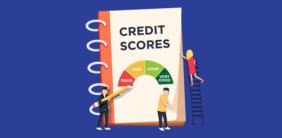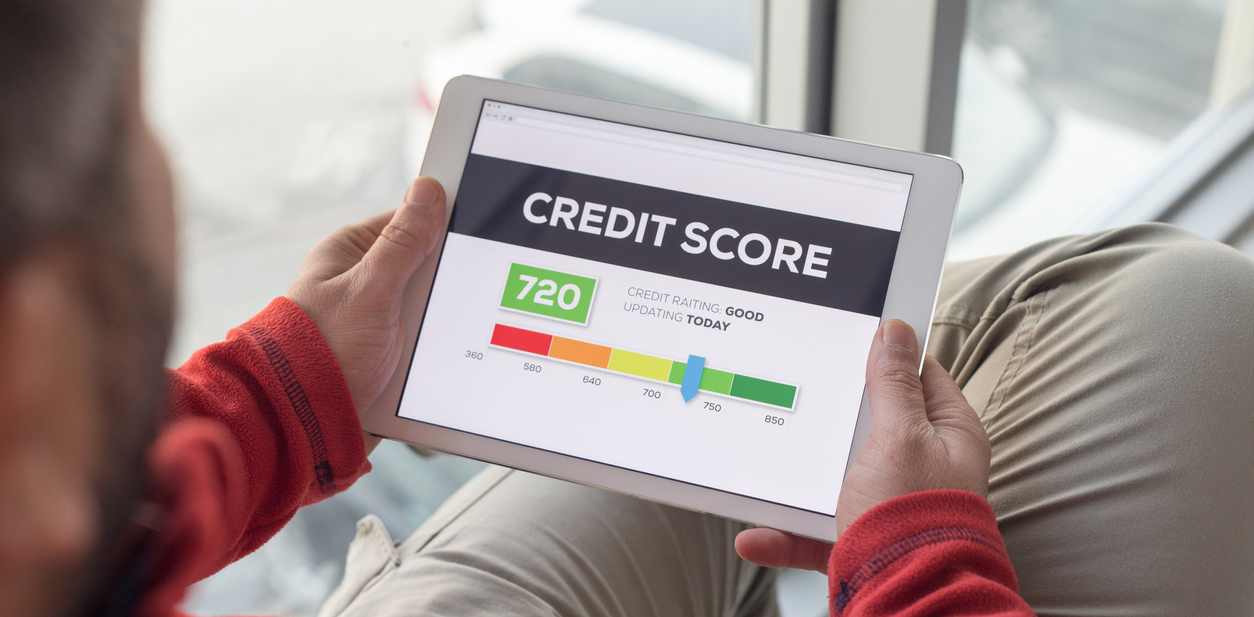Should I Pay off My Credit Card or Car Loan First?
;)

If you have more than one type of debt, deciding where to focus your repayment efforts can be tricky.
According to data from Experian, more than 84% of new cars purchased in 2020 required an auto loan, while buyers financed nearly 39% of used vehicle purchases. That means there are a lot of car loans out there, which — combined with other forms of debt, like mortgages and credit card balances — owners will be paying off for years to come.
It’s no wonder, then, that many drivers look for ways to get out of debt and pay down that loan balance even sooner than scheduled. But where to focus those get-out-of-debt efforts, and should you pay off credit cards or your car loan first?
Factors to Consider When Paying Off Debt
When deciding how, and in what order, to tackle your debt, there are a few important factors to consider. This will help you decide which debt is most important and where to focus your efforts.
Interest Rate
Arguably, the most important factor to note with any debt is its interest rate. This determines how much that debt will cost you in the end, and makes it easy to see which types of debt you should clear out first.
When it comes to paying off credit card debt or an auto loan first, for instance, you’ll find that your credit card often has a much higher interest rate. Because of this, it typically makes more sense to focus your efforts on paying down the revolving debt balance first, since it has the highest interest rate, then tackling your auto loan.
Monthly Budget
The larger the monthly payment on a specific account, the more it impacts your household finances. So you may want to focus your efforts on the one that would help your budget the most.
Installment accounts, like auto loans, establish set monthly payments for a specific number of months. Revolving accounts charge a minimum payment based on the overall balance at a given time, however.
Depending on your situation, you may want to focus on paying off one specific account simply to free up more of your budget, faster.
Overall Debt Burden
One big benefit to paying off debt is that it will improve your overall debt burden. This can not only boost your credit score but also help you get approved for other financial products, like a home mortgage.
Your overall debt-to-income ratio, or DTI, is a key figure that lenders consider when looking at your financial picture. This ratio is calculated by comparing how much debt you owe to how much you make annually.
If your total debt burden is too large compared to your income, lenders may be hesitant to offer you a new loan. Or if you are approved for a loan, you may not get offered the best possible terms with a high DTI.
The faster you pay down a balance, though — whether it be your credit card, your auto loan, or any other account — the faster your debt burden improves.
Penalties and Fees
Lastly, when comparing balances and deciding where to focus your efforts, you’ll first want to make sure you won’t be penalized in any way.
Some installment loans — like auto and personal loans — have prepayment penalties written into the contract. This means that if you pay off debt ahead of schedule, you’ll incur additional fees that could nullify any potential savings.
It’s easy to decide which debt to pay down first if one lender will penalize you for an early payoff.
Deciding to Pay Off a Credit Card or Car Loan First
There’s something truly magical about making that final car payment and owning your vehicle outright. As much as you may want to pay off your auto loan early, though, there could be a smarter option to take.
This is especially true if you’re deciding between credit card debt and a financed vehicle.
When to Pay Down Credit Card Debt First
There are a few times when credit card debt should take precedence over paying off a car loan early. Focusing your efforts on revolving balances could save money and time, help improve your credit, and even keep you from spiraling into further debt.
You should usually focus on credit card debt first (over an auto loan) if:
- You would incur a prepayment penalty if you paid off your auto loan ahead of schedule.
- Your credit report is notably impacted by a high credit utilization ratio, and reducing revolving account balances would boost your score.
- The positive credit history from your auto loan plays a significant role in your credit score, so paying off and closing that account would actually have a negative impact.
- Your credit card balances are incurring high finance charges each month, at a rate that dwarfs the APR on your car loan.
As mentioned, interest rates are usually one of the biggest considerations… and for good reason.
Say you have $5,000 on a credit card with an average APR of 14.99%, and you make $250 payments each month on the debt. After 24 months of payments, you will have cleared out the balance, but will have also paid about $790 in finance charges.
Let’s say that you also have a $5,000 auto loan during that same time period, with an average interest rate of 5.25%. You make $220 payments each month and after 24 months, that debt is also satisfied.
The difference, though, is that in the end, you will have paid only $220 in interest for the car loan. That’s $570 less than the amount of interest your credit card issuer charged you during that same time period.
When to Pay Down a Car Loan First
In some situations, it makes more sense to pay down a car loan first, even if you have credit card debt. This is often the case if:
- Your credit card account has a low — or introductory 0% — interest rate, giving you time to pay off the balance without incurring high (or any) finance charges.
- A cosigner helped you buy your car and now you want to relieve them of their obligation to the debt ahead of schedule.
- You are considering refinancing your auto loan but need to lower your loan-to-value ratio first in order to get approved.
Of course, everyone’s situation will be unique, so it’s important to consider all factors before deciding where to focus your biggest efforts.
Other Alternatives for Getting Out of Debt Faster
Before you go putting all of your debt-tackling eggs in one basket, though, know that there are a few alternatives to consider.
Refinance Your Auto Loan
If you’re looking to drop your monthly payment, get out of debt faster, pay less in interest for your car, and/or remove a cosigner from your loan, you should look into refinancing. Refinancing help you achieve all four of these things.
Even if you decide that you should focus on paying off credit card debt first, you can still refinance your auto loan in the meantime. This may even allow you to double down the efforts.
In fact, a recent RateGenius survey found that 24% of customers planned to use their auto refinance savings to pay off credit card debt. This route effectively kills two birds with one stone, locking in better terms for your auto loan while freeing up extra funds that help clear your credit card debt even sooner.
Utilize a Balance Transfer Offer
Another option — which can be done on its own or in conjunction with other efforts — is to utilize a balance transfer credit card offer.
Many credit card issuers will offer 0% balance transfers to new and existing customers. This allows you to move a credit card balance from a high-interest account to one that doesn’t charge interest for a promotional period of time.
This can compound your debt payoff efforts: The extra money you’ll save in interest can either go into paying down the credit card balance even faster, or can help pay off your auto loan even earlier than planned.
A balance transfer also works as a form of debt consolidation, if you have more than one credit card balance. You can use these offers to combine two or more credit card accounts, simplifying your monthly payment and reducing the overall interest paid.
Final Thoughts on Paying Down Credit Card or Auto Loan Debt
The bottom line here is that certain forms of debt can be not only beneficial for many borrowers, but even necessary in some cases. If you’re wanting to work your way toward being debt free, however, you will need to utilize certain tools, like loan repayment ahead of schedule, making extra payments, and reducing interest charges when you can.
If you’re deciding between paying off a credit card or a car loan, you’ll want to compare all of the details. Consider your monthly budget, the terms of each account, and what your overall goals are before you make any decisions. Know that in some cases, the answer really just comes down to you and your financial preferences.
And for many, a hybrid approach — such as refinancing your auto loan and using the savings to pay down credit card debt — might actually be the wisest possible approach.











